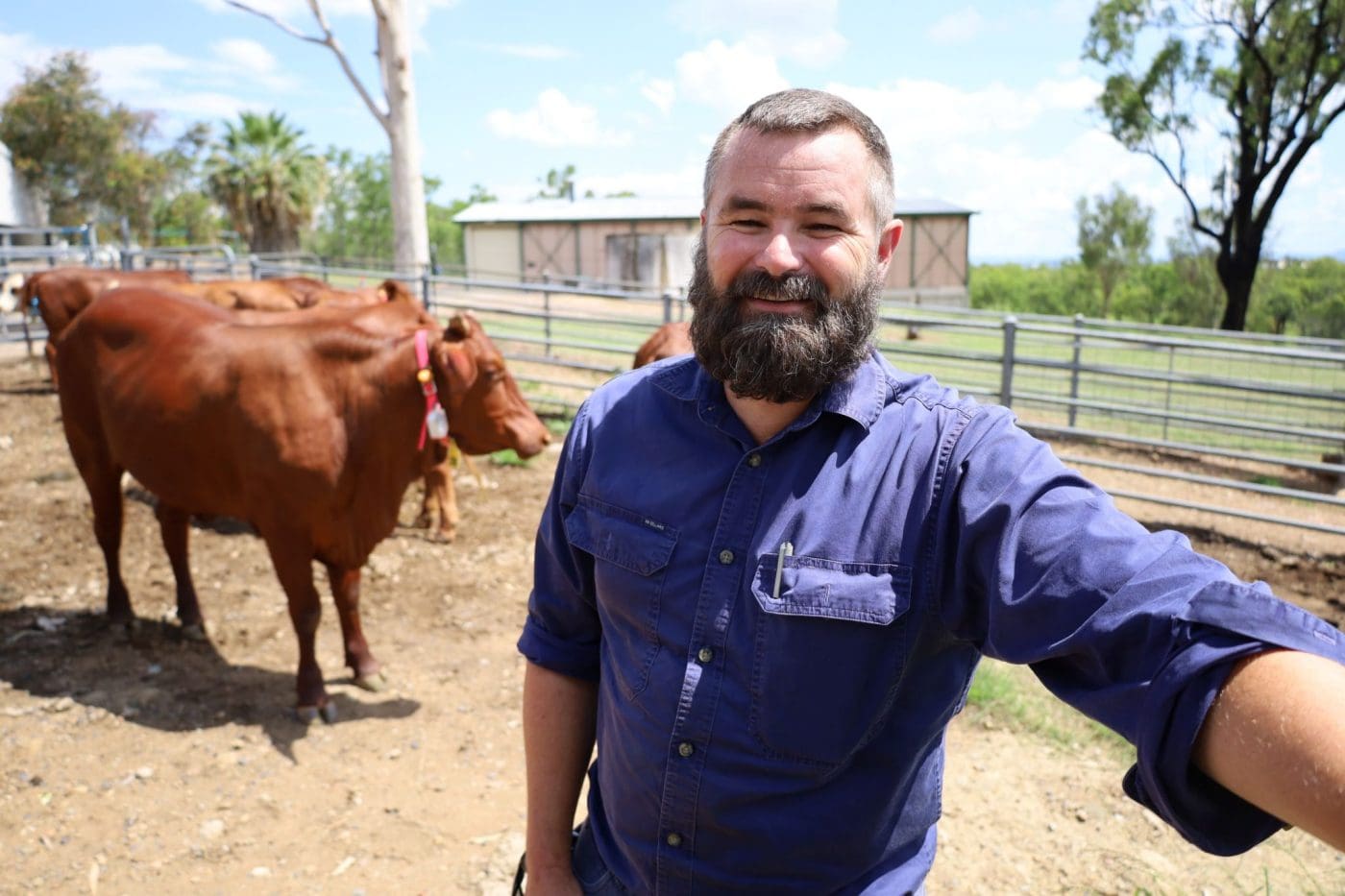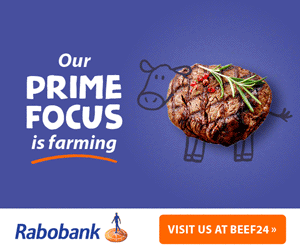
New research into climate impacts on extensive grazing suggests that cows start feeling the heat at much lower temperatures than expected.
Data captured from on-animal sensors shows cows have a significant decrease in rumination at maximum daily temperatures of 31oC or more. At this point, rumination time has dropped by around 20% which translates to reduced feed intake and impacts on production.
The preliminary data is from trials conducted by CQUniversity, in partnership with the University of Queensland and funded by Meat & Livestock Australia, over the summers of 2022/23 and 2023/24 at AgForce’s Belmont Research Station outside of Rockhampton.
The sensor technology and the results will be presented as part of Beef Australia’s property tour program to visitors attending the half-day tour of CQUniversity’s Central Queensland Innovation Research Precinct (CQIRP) on Wednesday May 8.
Professor Mark Trotter, head of CQU’s precision livestock management team, said the impacts of high temperatures in pastures and rangelands, and how cows change their behaviour to cope, were not well understood.
 “This is one of the first studies in the world to explore heat stress in extensively grazed beef cattle, with most of the research to date carried out in feedlots and the dairy industry,” Prof. Trotter said.
“This is one of the first studies in the world to explore heat stress in extensively grazed beef cattle, with most of the research to date carried out in feedlots and the dairy industry,” Prof. Trotter said.
“We are continuing to analyse this data to understand how breeders are responding to increasing temperatures and the subsequent impact on this may have production.
“This may challenge the way the industry thinks about the true costs of heat stress in grazing cattle, and if predictions of increasing temperatures come to fruition, we will have to start thinking about how we manage heat stress in our breeding cattle.
“While the big heat waves are likely to have obvious impacts, it’s the more subtle changes in coping behaviour at more moderate temperatures that could really start to eat into production,” Prof Trotter said.
The CQU research team is also exploring how heat stress impacts calves at Belmont Research Station by using GPS tracking and accelerometer sensors to detect impacts on survival and growth through to weaning.
“By understanding individual animal variability in heat stress response, there may be an opportunity in future for genetic selection of more tolerant cattle,” Prof. Trotter said.
A range of on-animal sensors will be presented to participants on the CQIRP tour, with researchers to provide a candid assessment of performance and value of these smart tags for monitoring stock location, behaviour and wellbeing, as well as water and feedbase usage.
The tour also features technology from DIT Agtech that is being used in CQU research to mitigate methane emissions from cattle, with an additive delivered in combination with a nutrient supplement via the drinking water shown to reduce methane emissions by 15%.
The research is part of a range of studies underway at CQU, including evaluation of new dual-purpose crops and tropical legumes, and precision feeding technologies delivering supplements based on the requirement of the individual animal to achieve a production target.
Attendees interested in the latest genetic technologies will receive a presentation from ST Genetics, which has recently established a new semen sexing laboratory at CQU to service the northern beef industry.
The CQIRP tour conclude with a keynote address from renowned livestock reproductive endocrinologist, Dr Jim Kinder of Ohio State University.
- Tickets are available at the Beef Australia website: https://tickets.beefaustralia.com.au/event/westpac-property-tours/
- Producers and industry can also meet with researchers as part of CQU’s “Ask-an-Expert” sessions being held at site R22 of the Schwarten Pavilion at the Beef Australia grounds – www.cqu.edu.au/beef2024



Hooray!…
Cows respond to temperature variations of a degree or two, and respond in various ways, usually subtle responses.
Cows are survivors. They adapt their behaviour to suit their environment. More research needed here.
Polite reminder than full, and genuine names required for future comments please John – as per our long-standing reader comment policy. Failure to conform will simply see submitted comments not published. Editor
Hi John, agree with your comments, we are seeing some interesting and as you suggest subtle changes in behaviour across different temperature regimes. They definitely adapt and change their behaviour to suit their environment and some seem to be able to do it better than others. We see some cows having to “quit” grazing at much lower temperatures than others who can maintain intake in the heat. There’s so much research out there on this topic in feedlots and dairy but we’ve got a lot to learn about the impacts and how we can ameliorate them in grazing systems!